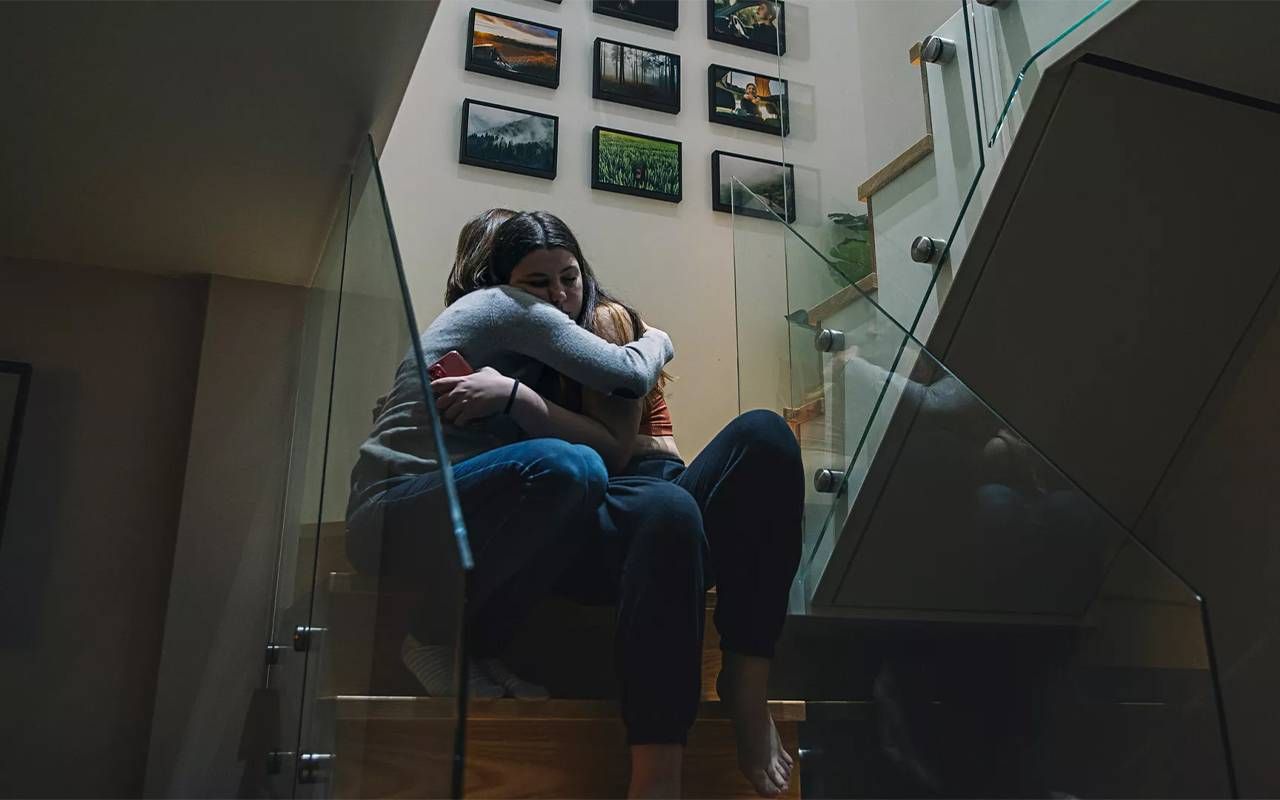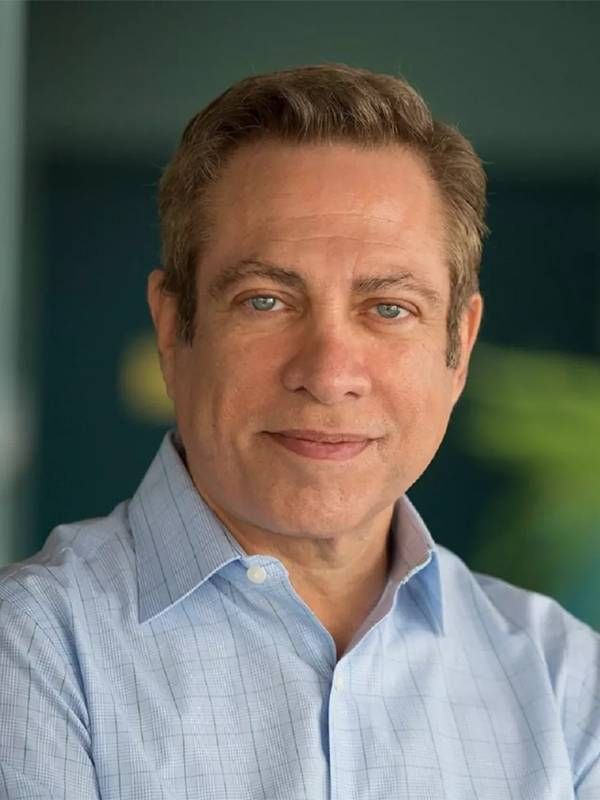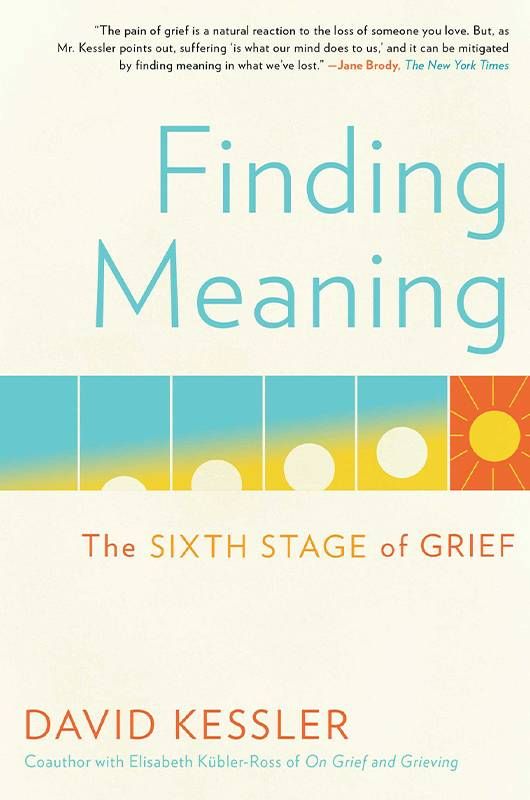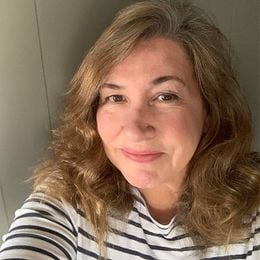Understanding the Challenges of Grief
Grief expert David Kessler on writing 'Finding Meaning: The Sixth Stage of Grief' while grieving the loss of his son
In David Kessler's book, "Finding Meaning: The Sixth Stage of Grief," he writes: We want to find meaning. Loss can wound and paralyze. It can hang over us for years. But finding meaning in loss empowers us to find a path forward.

For Kessler, a noted grief expert, finding a path forward became an unexpected and integral part of his life. While writing the book, Kessler's son David, who had overcome a drug habit only to start using again, died in 2016 at the age of 21.
"We can't change the pain, but we can build a meaningful life around that pain."
The founder of Grief.com, Kessler, 63, spent several years working with the late psychiatrist Elisabeth Kübler-Ross (author of the groundbreaking "On Death and Dying") and co-authored two books with her.
Additionally, Kessler, who lives in Los Angeles, has counseled countless individuals, led workshops and delivered presentations throughout his long career. He is a trained thanatologist (someone who studies death and dying) and has been onsite at crime scenes, plane crashes and other traumatic events to help grieving loved ones. Kessler also lost his mother at age 13, and because he was under 14, was prevented from being in her hospital room with her at the end of her life.
Next Avenue talked with Kessler about facing loss and finding meaning in, as he says, "a grief-illiterate society."
Next Avenue: People in grief often ask you where they are supposed to find meaning in a loss. Where are some of those places?
David Kessler: I think that meaning is everywhere, just waiting to be found. We can find meaning in how [our loved ones'] lives touched ours. There is meaning in how we're changed by their lives, and how we changed theirs.
In your work as a grief counselor, you tell people their grief won't get 'smaller' over time, but they must get 'bigger.' How does that happen?
When people ask me 'How long will I grieve?' I respond by asking them, 'How long will your loved one be dead?' We can't change the pain, but we can build a meaningful life around that pain.
Think of the memories you have of your parents or your grandparents, that live with you and that you can share with your children and with your grandchildren. That is the growth that can come from pain.

In our culture, we talk so much about Post Traumatic Stress Disorder, but we should talk about Post Traumatic Stress Growth. It's after loss that growth is possible.
In today's world, you say grief has been 'minimized and sanitized.' Why is it such a struggle to bear witness to someone's pain? How can we be present when people we know are grieving?
Our generation is probably one of the last generations that remembers when death was part of life. I remember as a boy riding in the car, and seeing a hearse driving down the street ahead of us. Our grandparents may have died at home, now death generally happens in a hospital.
We are a grief-illiterate society. We are also a society that wants to 'fix' everything. When someone is grieving, they aren't broken. They don't need to be fixed. They need someone to sit with them in their pain and to witness their grief. In some ways, I'm teaching the lessons of our great-grandparents, who did those things when someone died.
Some people skip funerals because they are afraid of facing pain or remembering their own losses. If you are a person whose friend didn't attend the funeral of your loved one, how do you move forward in that relationship?
First of all, I really encourage people to attend funerals. It's important. However, if you have a friend who didn't attend a funeral for someone you loved, know that it wasn't about you. It wasn't a statement about your friendship. It was a statement about their own pain. They didn't do it to you — they just did it.
If you've had a friendship for twenty years, forgive them because of that twenty years.
You talk about the difference between private and public grief. Can you explain this?
Our grief is as unique as our fingerprint. We all have different backgrounds of love, and we all approach grief in our own ways.
In our generation, we were taught to be stoic. Think of the example of Jacqueline Kennedy, who didn't cry publicly after JFK's assassination. People said, 'That's what strong grief looks like.' But she was later quoted as saying, 'That was the First Lady grieving.' Of course she cried in private.
We all act differently in public. Some people cry with friends, but some only cry alone.

Quoting Elisabeth Kübler-Ross, you say that people can be left with 'unfinished business' when someone from whom they have been estranged dies. How can they make peace with that?
We have to accept who they were, and the role they played in this lifetime. I always say it takes two people to tango — it wasn't all you, and it wasn't all them.
I believe that if you ask forgiveness sincerely in your heart, the person who is gone will feel it sincerely in theirs. A lot of people report that they have better relationships with people in death than they did in life.
While you do touch on the death of your son David at various points in the book, it isn't until the end, in a chapter called 'Everything Has Changed Forever,' where you tell the story of his death and the days following. Why did you decide to talk about your personal experience of grief at the end of the book rather than at the beginning?
This isn't a memoir, or a book about my grief. My grief is just one example; the book has many stories from other people about their grief.
A month after David died, a forty-three-year-old friend of mine died of the flu. Another friend lost their beloved dog not long after that. When I offered consolation, people said, 'Your grief is worse than mine,' but that's not true. All tears count. The worst grief is always yours.
How are you finding meaning?
Elisabeth Kübler-Ross never intended for the five stages of grief to be linear. They don't prescribe how you are supposed to grieve, they describe how you are supposed to grieve. As I write in the book, my work isn't about my son's death, but his death has deepened my work. And finding meaning is not extraordinary, it's ordinary. Grief is not about pain. It's about love.


